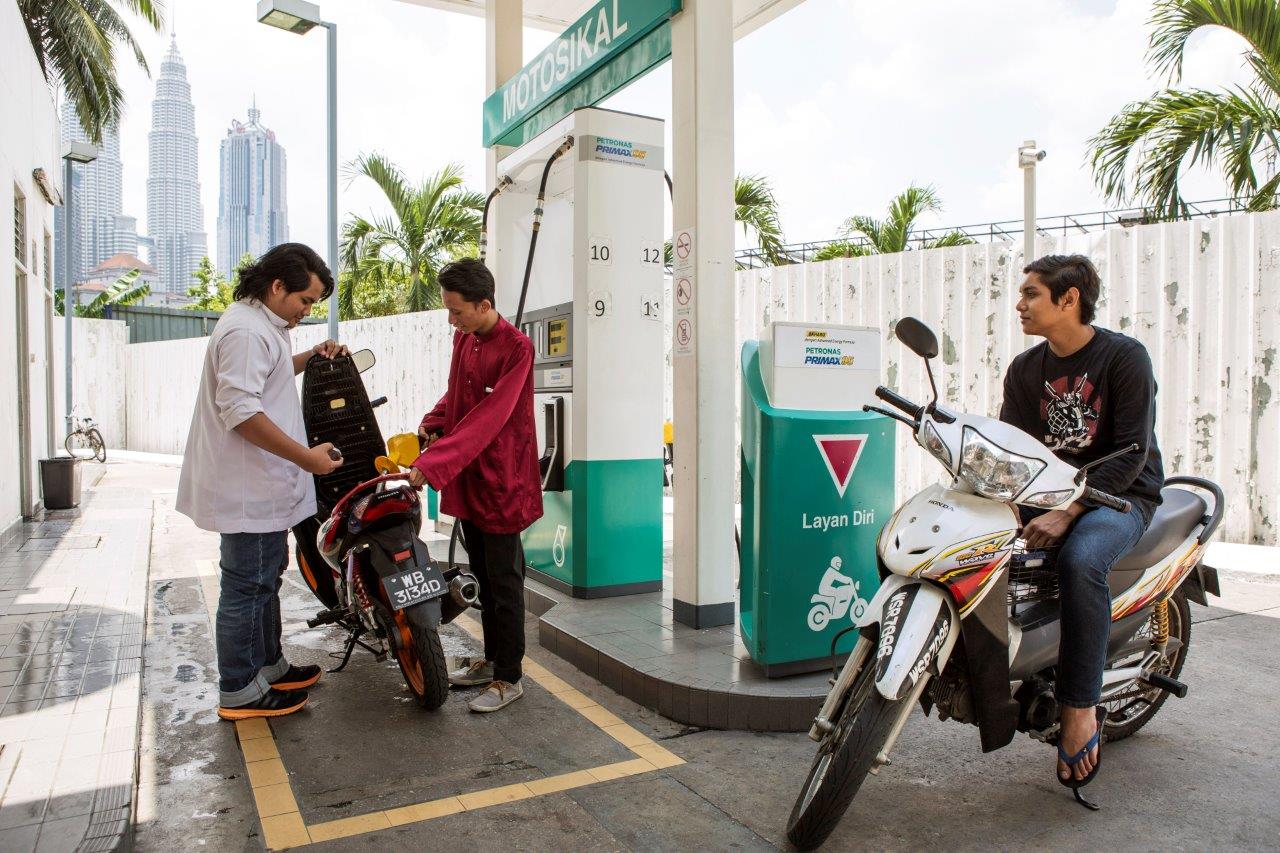Malaysia's 2016 budget likely to be prudent spread of goodies
Sign up now: Get insights on the biggest stories in Malaysia

Revenue from petroleum taxes, including dividend from Petronas, is expected to be down by more than 50 per cent while Malaysia is also hit by the lower demand for crude palm oil.
PHOTO: BLOOMBERG
Follow topic:
KUALA LUMPUR (ASIA NEWS NETWORK) - Malaysia's budget 2016 is likely to have something for everyone, including the middle class, but expectations must be "realistic".
One of the most challenging budgets to date for Prime Minister Najib Razak, it is expected to spread the benefit across all segments of society and promote key sectors while at the same time be prudent in expenditure.
There will be measures to help offset the rising cost of living, including allocating more for schemes such as BR1M (Bantuan Rakyat 1Malaysia) for the bottom 40 per cent of income earners.
Housing is expected to be one of the priorities and there may be some "tweaking" in terms of personal relief.
The Prime Minister in his pre-Budget 2016 message on Thursday (Oct 22) said that the Government was "well-placed to continue to put the people first".
The budget will provide assistance - especially to vulnerable groups - to help with rising living costs; support the private sector with pro-business policies; and ensure inclusive growth, enhance human capital development, and increase productivity, innovation and green technology.
"I have a plan, and the plan is working. I will not be distracted, for there are serious consequences of not seeing the plan through.
"Budget 2016 will show how the plan will improve lives of all Malaysians, and our next steps towards achieving Vision 2020 and achieving developed nation status. The future and welfare of all Malaysians is my top priority," he said.
A senior Finance Ministry official said "we have something for practically everybody."
The budget is likely to offer incentives to certain key sectors which the Government wants to promote and it would be committed to continuing major infrastructure projects such as the Pan Borneo Highway and light rail transit and mass rapid transit projects.
The Government is expected to announce measures to spur certain sectors like manufacturing and tourism which could benefit from the weaker ringgit.
"More can be done to encourage tourists from China," the official said when asked to comment on Chinese visas.
Asked if there would be a reduction in income tax, he said there would be some minor adjustments.
"Had oil prices remained at above US$80 (S$111.5) per barrel, the Government could have afforded some cuts in personal income tax, especially with the encouraging collection from the Goods and Services Tax (GST)," he said.
Citing the GST as the "saviour" of the Government's coffers, he said without it, the impact on the Malaysian economy and deficit in the current account would have been severe.
"The GST has turned out to be the saviour in contributing to the Government's coffers in the face of the significant drop in oil and gas revenue," said the official.
Najib is expected to explain in the budget - to be tabled in Parliament at 4pm on Friday - how the additional revenue from the GST would be used.
The good news is that GST collection is above expectation due to more than 90 per cent compliance, with collection this year likely to be about RM27 billion (S$8.8 billion) with a forecast of about RM40 bil lionnext year.
The first three months of GST implementation saw RM7.6 billion collected compared to the Sales Tax and Services Tax (SST) revenue of RM4.1 billion in the corresponding period last year.
The bad news is that the GST collection is unable to meet the shortfall from the sharp decline in revenue caused by the drop in the price of oil from US$100 per barrel to less than half.
Revenue from petroleum taxes, including dividend from Petronas, is expected to be down by more than 50 per cent while Malaysia is also hit by the lower demand for crude palm oil.
The budget is based on the assumption that the price of oil would remain at current levels of about US$50 per barrel.
The economy is expected to grow about 4.5 per cent next year with inflation at between 2 per cent and 2.5 per cent. Unemployment, which has been a nagging issue due to the slowing economy, is expected to remain stable.
As for the Government's discipline in spending, the fiscal deficit is expected to fall marginally from the current 3.2 per cent.
Overall, the budget will be crafted within the financial constraints the Government faces. Prudent spending will be a priority while maximising on the delivery on goodies and spurring economic growth.

